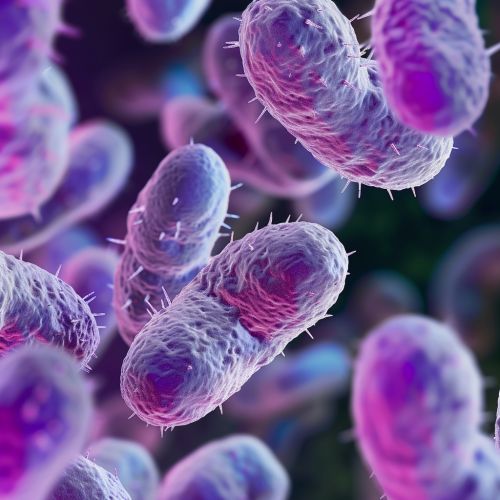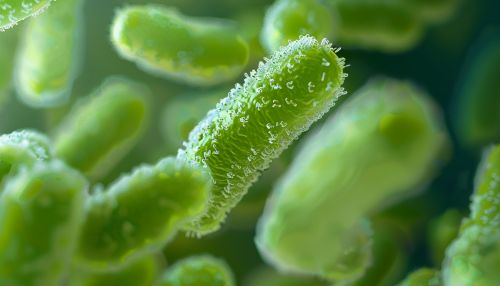Rhizobiaceae
Overview
The Rhizobiaceae family is a group of Gram-negative bacteria that are known for their ability to form symbiotic relationships with leguminous plants. This family of bacteria includes genera such as Rhizobium, Agrobacterium, Allorhizobium, Azorhizobium, Bradyrhizobium, Ensifer, Mesorhizobium, Neorhizobium, Pararhizobium, and Sinorhizobium.


Taxonomy
The Rhizobiaceae family is part of the order Rhizobiales, which belongs to the class Alphaproteobacteria within the phylum Proteobacteria. The taxonomy of Rhizobiaceae has undergone significant changes over the years due to advancements in molecular techniques, leading to the reclassification of several species and genera.
Morphology
Members of the Rhizobiaceae family are typically rod-shaped and motile due to the presence of flagella. They are Gram-negative bacteria, meaning they have a thin peptidoglycan layer and an outer membrane composed of lipopolysaccharides.
Metabolism
Rhizobiaceae are aerobic bacteria, requiring oxygen for their metabolism. They are capable of both heterotrophic and autotrophic growth. Heterotrophic growth involves the consumption of organic compounds, while autotrophic growth involves the fixation of carbon dioxide.
Symbiosis with Plants
One of the defining characteristics of the Rhizobiaceae family is their ability to form symbiotic relationships with leguminous plants. This symbiosis involves the formation of root nodules, where the bacteria fix atmospheric nitrogen into a form that the plant can use. In return, the plant provides the bacteria with nutrients.
Industrial and Agricultural Significance
The ability of Rhizobiaceae to fix nitrogen has significant implications for agriculture. The use of Rhizobiaceae as biofertilizers can enhance soil fertility and crop yield, reducing the need for synthetic nitrogen fertilizers. Some members of the Rhizobiaceae family, particularly Agrobacterium, are also significant in the field of biotechnology for their ability to transfer DNA into plants.
